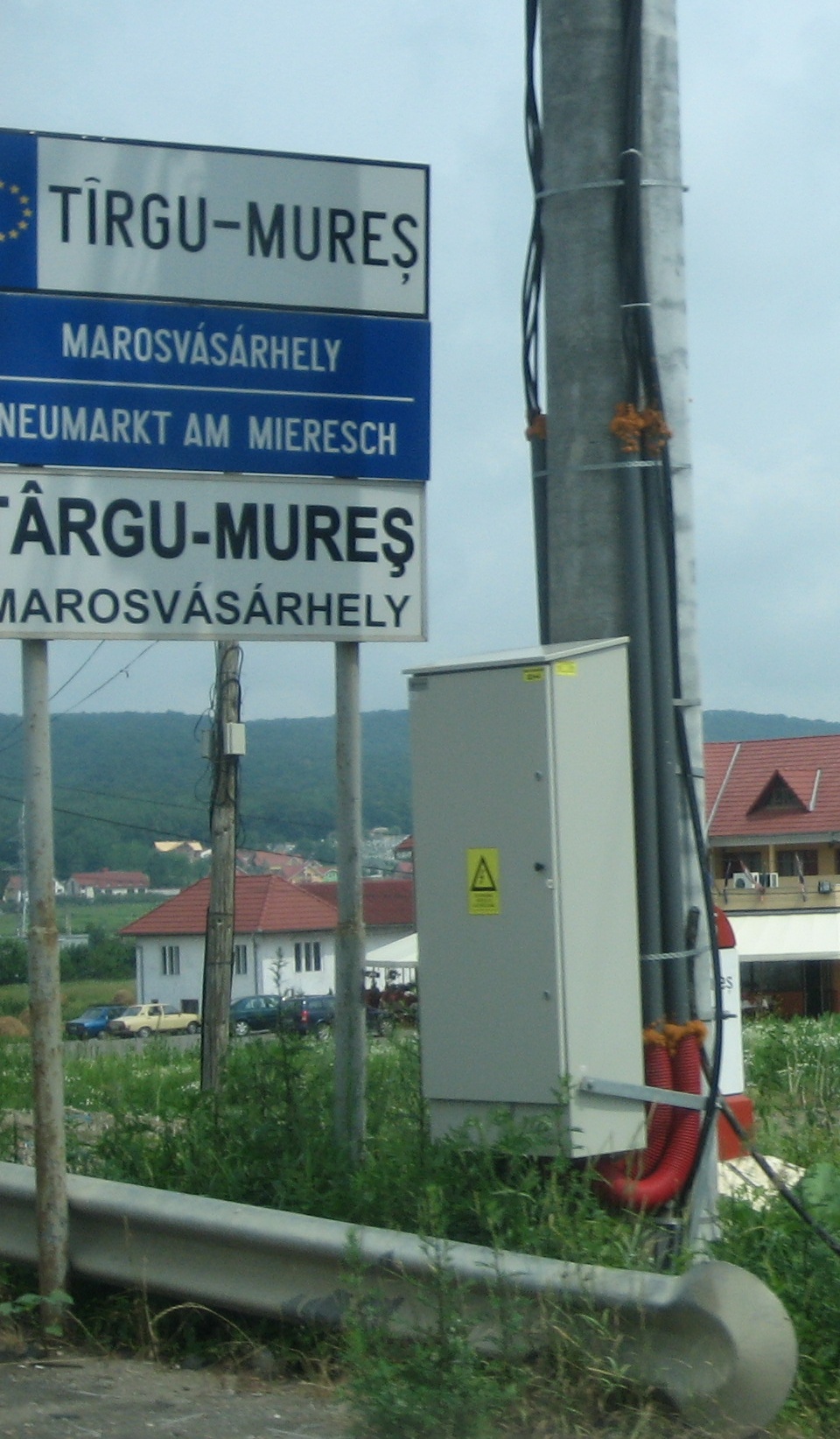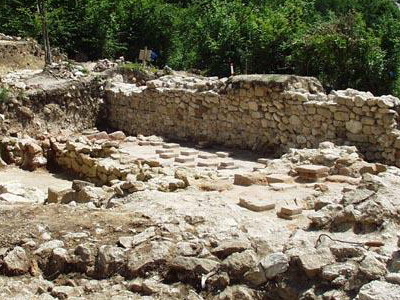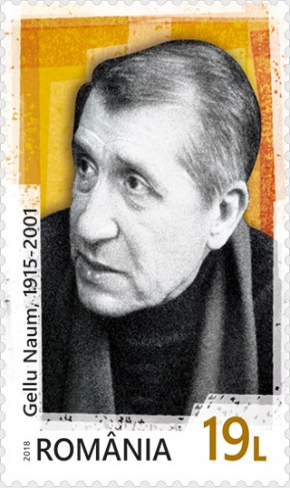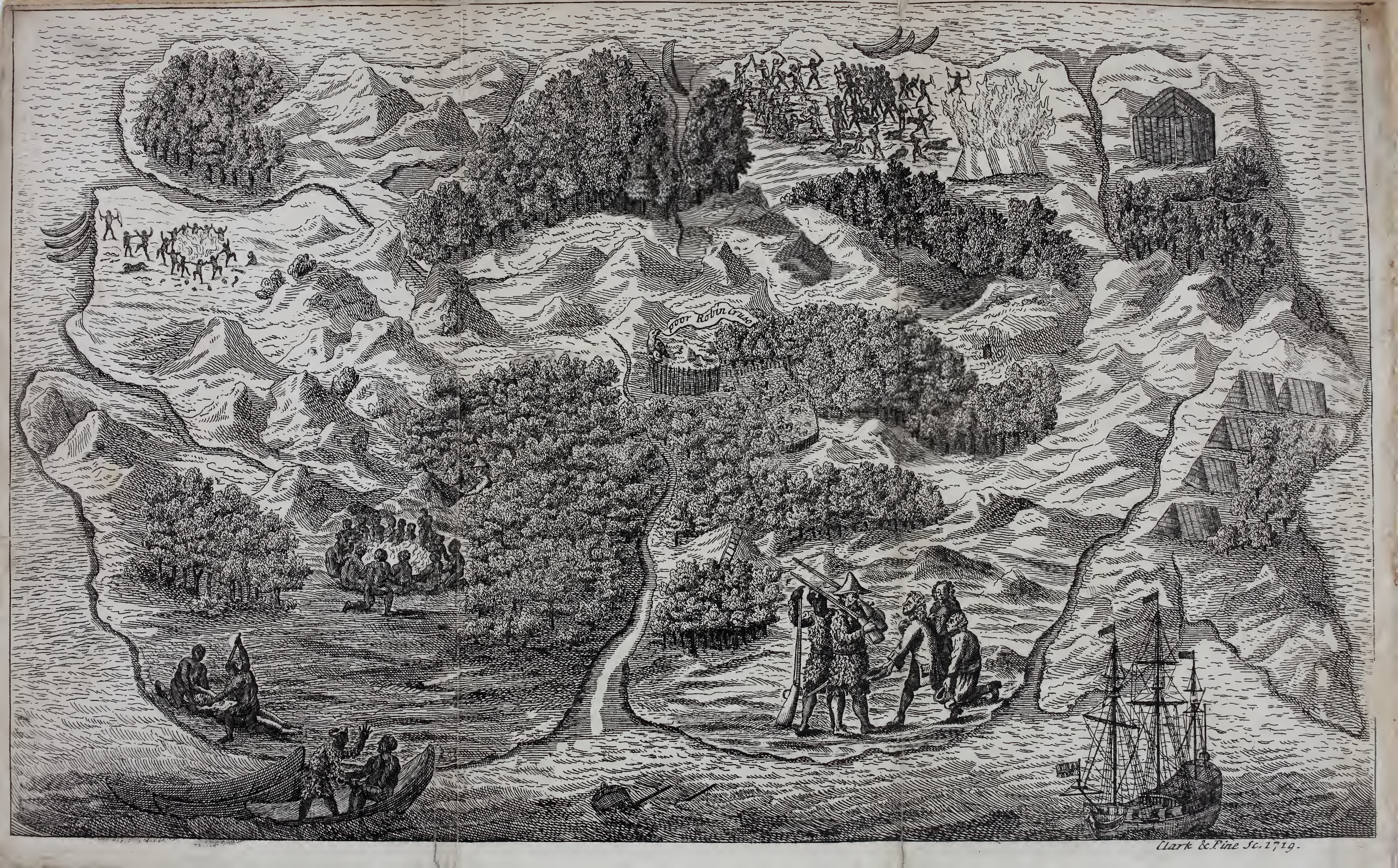|
Ada Milea
Ada Milea (born August 5, 1975) is a Romanian singer and actress. Ada has written several film scores. She has supported a community under threat from a mining company by volunteering her talents for a festival. Life Milea was born in Târgu Mureș. She attended the University of Arts of Târgu Mureș. She worked at the National Theatre of Targu Mures, in 1997. She left to try her own career in 1999. The album Absurdistan was recorded by Milea in 2002. In 2005 she was one of the performers volunteering their time for FanFest which was a concert in support of Roșia Montană a community under threat from mining. She wrote the music for the award winning film Elevator which was released in 2008. It was an independent film with two actors which was directed by George Dorobanțu and written by based on his own play. Milea & Alexander Balanescu published the CD ''The Island'' - featuring the Balanescu Quartet in 2011. In 2019 Milea headlined at London's 'Europalia Romania' festiva ... [...More Info...] [...Related Items...] OR: [Wikipedia] [Google] [Baidu] |
Târgu Mureș
Târgu Mureș (, ; hu, Marosvásárhely ) is the seat of Mureș County in the historical region of Transylvania, Romania. It is the List of cities and towns in Romania, 16th largest Romanian city, with 134,290 inhabitants as of the 2011 Romanian census, 2011 census. It lies on the Mureș (river), Mureș River, the second longest river in Romania (after the Danube). Names and etymology The current Romanian language, Romanian name of the city, ''Târgu Mureș'', is the equivalent of the Hungarian language, Hungarian ''Marosvásárhely'', both meaning "market on the Mureș (river), Mureș (Maros) [River]". ''Târg'' means "market" in Romanian and ''vásárhely'' means "marketplace" in Hungarian. Local Hungarians often shorten ''Marosvásárhely'' to ''Vásárhely'' in speech. The Society of Jesus, Jesuit priest Martin Szentiványi provides the first known written reference naming the city; in his work ''Dissertatio Paralipomenonica Rerum Memorabilium Hungariae'' (written in 1699 ... [...More Info...] [...Related Items...] OR: [Wikipedia] [Google] [Baidu] |
Romania
Romania ( ; ro, România ) is a country located at the crossroads of Central Europe, Central, Eastern Europe, Eastern, and Southeast Europe, Southeastern Europe. It borders Bulgaria to the south, Ukraine to the north, Hungary to the west, Serbia to the southwest, Moldova to the east, and the Black Sea to the southeast. It has a predominantly Temperate climate, temperate-continental climate, and an area of , with a population of around 19 million. Romania is the List of European countries by area, twelfth-largest country in Europe and the List of European Union member states by population, sixth-most populous member state of the European Union. Its capital and largest city is Bucharest, followed by Iași, Cluj-Napoca, Timișoara, Constanța, Craiova, Brașov, and Galați. The Danube, Europe's second-longest river, rises in Germany's Black Forest and flows in a southeasterly direction for , before emptying into Romania's Danube Delta. The Carpathian Mountains, which cross Roma ... [...More Info...] [...Related Items...] OR: [Wikipedia] [Google] [Baidu] |
University Of Arts Of Târgu Mureș
A university () is an institution of higher (or tertiary) education and research which awards academic degrees in several academic disciplines. Universities typically offer both undergraduate and postgraduate programs. In the United States, the designation is reserved for colleges that have a graduate school. The word ''university'' is derived from the Latin ''universitas magistrorum et scholarium'', which roughly means "community of teachers and scholars". The first universities were created in Europe by Catholic Church monks. The University of Bologna (''Università di Bologna''), founded in 1088, is the first university in the sense of: *Being a high degree-awarding institute. *Having independence from the ecclesiastic schools, although conducted by both clergy and non-clergy. *Using the word ''universitas'' (which was coined at its foundation). *Issuing secular and non-secular degrees: grammar, rhetoric, logic, theology, canon law, notarial law.Hunt Janin: "The university ... [...More Info...] [...Related Items...] OR: [Wikipedia] [Google] [Baidu] |
Absurdistan
Absurdistan is a term sometimes used to satirically describe a country in which absurdity is the norm, especially in its public authorities and government. The expression was originally used by Eastern bloc dissidents to refer to parts (or all) of the Soviet Union and its satellite states. Origins The first known printed use of the word "Absurdistan" appeared in 1971 in the German monthly ". Later, in Czech, the term was used by dissident and later president Václav Havel. This seems to indicate that use of the term began during perestroika. The first recorded printed use of the term in English was in ''Spectator'' in an article on August 26, 1989, about Czechoslovakia (''Czechoslovakians have taken to calling their country "Absurdistan" because everyday life there has long resembled the "Theatre of the Absurd".'') On September 18, 1989, an article in ''The Nation'' was called ''Prague Summer of '89: Journey to Absurdistan''. On August 30, 1990, ''The New York ... [...More Info...] [...Related Items...] OR: [Wikipedia] [Google] [Baidu] |
Roșia Montană
Roșia Montană (, "Roșia of the Mountains"; la, Alburnus Maior; hu, Verespatak, ; german: Goldbach, Rotseifen) is a commune of Alba County in the Apuseni Mountains of western Transylvania, Romania. It is located in the Valea Roșiei, through which the small river Roșia Montană flows. The commune is composed of sixteen villages: Bălmoșești, Blidești, Bunta, Cărpiniș (''Abrudkerpenyes''), Coasta Henții, Corna (''Szarvaspatak''), Curături, Dăroaia, Gârda-Bărbulești, Gura Roșiei (''Verespataktorka''), Iacobești, Ignățești, Roșia Montană, Șoal, Țarina, and Vârtop (''Vartop''). The rich mineral resources of the area have been exploited since Roman times or before. The state-run gold mine closed in late 2006 in advance of Romania's accession to the European Union. Gabriel Resources of Canada plan to open a new mine. This has caused controversy on one hand over the extent to which remains of Roman mining would be preserved and over fears of a repeat of the ... [...More Info...] [...Related Items...] OR: [Wikipedia] [Google] [Baidu] |
Elevator (2008 Film)
''Elevator'' is a Romanian film, Romanian independent film directed by George Dorobanțu and written by . The screenplay adapts Pintilei's own 2004 stageplay ''Elevator'', which was inspired by a real story that took place in London in 2002. Both the movie and the play won several national and international awards. Background In 2004, during a student party at the Caragiale Academy of Theatrical Arts and Cinematography (UNATC), Gabriel Pintilei began work on what would become the play entitled ''Elevator''. He won the DramAcum2 contest for the play. Alexandra Păun and George Dorobanţu became interested in the cinematographic adaptation of the play after seeing a stage version directed by Adrian Zaharia, at the Teatrul Foarte Mic theater in Bucharest. In 2005 Păun and Dorobanţu met Gabriel Pintilei. After seeing the performances of Iulia Verdeş and Cristi Petrescu in a performance of the play that Pintilei directed, Păun and Dorobanţu cast the two stage actors in leading, an ... [...More Info...] [...Related Items...] OR: [Wikipedia] [Google] [Baidu] |
Independent Film
An independent film, independent movie, indie film, or indie movie is a feature film or short film that is produced outside the major film studio system, in addition to being produced and distributed by independent entertainment companies (or, in some cases, distributed by major companies). Independent films are sometimes distinguishable by their content and style and the way in which the filmmakers' personal artistic vision is realized. Usually, but not always, independent films are made with considerably lower budgets than major studio films. It is not unusual for well-known actors who are cast in independent features to take substantial pay cuts for a variety of reasons: if they truly believe in the message of the film; they feel indebted to filmmaker for a career break; their career is otherwise stalled or they feel unable to manage a larger commitment to a studio film; the film offers an opportunity to showcase a talent that hasn't gained traction in the studio system; or ... [...More Info...] [...Related Items...] OR: [Wikipedia] [Google] [Baidu] |
George Dorobanțu
George Dorobanţu (born October 14, 1974) is a Romanian filmmaker. He made his directorial debut with ''Elevator'' (2008), an indie production adapting Gabriel Pintilei's stage play of the same title. Aside from being a director, he is also working for the advertising industry. Films Dorobanţu's first Elevator has been notable due to the claim that it was made with a fund of 300 euro. Despite the shoestring budget, it earned several rewards both in Romania and overseas. Elevator was followed by ''Bucharestless'', which was a cinéma verité or a documentary about the Romanian capital. The 2011 film had an outside-the-box cinematic perspective, with a sequential narrative approach, and no dialogues. It depicted the soul of the city, which was referred to in the past as "Little Paris". The post-apocalyptic film called ''Omega Rose'' followed ''Bucharestless'', although it was only completed in 2018. This movie was already in post-production stage in 2012. During the same year, ... [...More Info...] [...Related Items...] OR: [Wikipedia] [Google] [Baidu] |
Balanescu Quartet
Balanescu Quartet is an avant-garde string ensemble formed in 1987. Current members are Alexander Bălănescu (violin), James Shenton (violin), Helen Kamminga (viola) and Nick Holland (cello). Group history The Balanescu Quartet is a contemporary music ensemble formed in 1987. Its guiding force has been the Romanian virtuoso violinist and composer Alexander Balanescu, who has led the quartet across musical frontiers into new uncharted territory. This search to push the limits of the string quartet, has revealed an ensemble nearer to a band rather than a classical group, and reflects Balanescu's passionate belief in the intercommunication and fluidity between different musical fields. From its roots as collaborators with composers such as Michael Nyman and Gavin Bryars, through projects with Lounge Lizard John Lurie, Jack de Johnette, Ornette Coleman, David Byrne, the Pet Shop Boys, Spiritualized, Kate Bush and Kraftwerk, they have developed their own unique writing and perfo ... [...More Info...] [...Related Items...] OR: [Wikipedia] [Google] [Baidu] |
Gellu Naum
Gellu Naum (1 August 1915 – 29 September 2001) was a Romanian poet, dramatist, novelist, children's writer, and translator. He is remembered as the founder of the Romanian Surrealist group. The artist Lygia Naum, his wife, was the inspiration and main character in his 1985 novel ''Zenobia''. Biography Born in Bucharest, he was the son of the poet (who had been drafted in World War I and died during the Battle of Mărăşeşti) and his wife Maria Naum née Rosa Gluck. In 1933, he began studying philosophy at the University of Bucharest. In 1938, he left for France, where he continued his studies at the University of Paris. He took his PhD diploma with a thesis on the scholastic philosopher Pierre Abelard. In 1936 (the year when he published his first book), Naum met Victor Brauner, who became his close friend and who later introduced him to André Breton and his Surrealist circle in Paris. In 1941, he helped create the Bucharest group of Surrealists (which also included Gh ... [...More Info...] [...Related Items...] OR: [Wikipedia] [Google] [Baidu] |
Robinson Crusoe
''Robinson Crusoe'' () is a novel by Daniel Defoe, first published on 25 April 1719. The first edition credited the work's protagonist Robinson Crusoe as its author, leading many readers to believe he was a real person and the book a travelogue of true incidents. Epistolary, confessional, and didactic in form, the book is presented as an autobiography of the title character (whose birth name is Robinson Kreutznaer) – a castaway who spends 28 years on a remote tropical desert island near the coasts of Venezuela and Trinidad, roughly resembling Tobago, encountering cannibals, captives, and mutineers before being rescued. The story has been thought to be based on the life of Alexander Selkirk, a Scottish castaway who lived for four years on a Pacific island called "Más a Tierra" (now part of Chile) which was renamed Robinson Crusoe Island in 1966. Despite its simple narrative style, ''Robinson Crusoe'' was well received in the literary world and is often credited as ma ... [...More Info...] [...Related Items...] OR: [Wikipedia] [Google] [Baidu] |
Romanian Actresses
Romanian may refer to: *anything of, from, or related to the country and nation of Romania **Romanians, an ethnic group **Romanian language, a Romance language *** Romanian dialects, variants of the Romanian language ** Romanian cuisine, traditional foods **Romanian folklore The folklore of Romania is the collection of traditions of the Romanians. A feature of Romanian culture is the special relationship between folklore and the learned culture, determined by two factors. First, the rural character of the Romanian ... * Romanian (stage), a stage in the Paratethys stratigraphy of Central and Eastern Europe *'' The Romanian'' newspaper *'' The Romanian: Story of an Obsession'', a 2004 novel by Bruce Benderson * * {{disambiguation Language and nationality disambiguation pages ... [...More Info...] [...Related Items...] OR: [Wikipedia] [Google] [Baidu] |





